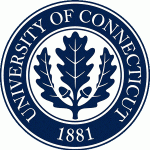 Oskar Harmon and Paul Tomolonis (UConn PhD 2017) have co-authored the article “Learning Tableau – A data visualization tool”, published in the Journal of Economic Education.
Oskar Harmon and Paul Tomolonis (UConn PhD 2017) have co-authored the article “Learning Tableau – A data visualization tool”, published in the Journal of Economic Education.
ABSTRACT: “Doing economics” is an important theme of undergraduate economics programs. Capstone courses increasingly include instruction in “data literacy” and the STEM-related skills of quantitative and empirical methods. Because the professional discipline has moved in this direction and because of greater employer demand for these skills, data visualization is a key component of data literacy. Tableau is a free data visualization software widely used in the data analytics industry. In this article, the authors introduce an exercise that teaches the fundamental Tableau concepts and commands needed to create charts, assemble them in a dashboard, and tell a story of patterns observed in the data. The exercise assumes no prior experience in Tableau and is appropriate for undergraduate upper-level economics courses or an empirical methods course.
The article is available at the JEE website

 Based on his research of the impact of the 2009 H1N1 pandemic, Professor Jorge Agüero has published two op-eds for Peruvian outlets on the economics of the Covid-19, how it could affect the Peruvian economy and the role of public policies to reduce the impact of the pandemic.
Based on his research of the impact of the 2009 H1N1 pandemic, Professor Jorge Agüero has published two op-eds for Peruvian outlets on the economics of the Covid-19, how it could affect the Peruvian economy and the role of public policies to reduce the impact of the pandemic. On February 27, 2020, two Economics students from the Storrs campus (Daija Brunson and Pershae Gilling) and one Economics student from the Stamford campus (Viviana Castillo) got the chance to travel to Cleveland, OH, for a Women in Economics Symposium. In the morning of the event the students got the chance to meet Research Assistants for the
On February 27, 2020, two Economics students from the Storrs campus (Daija Brunson and Pershae Gilling) and one Economics student from the Stamford campus (Viviana Castillo) got the chance to travel to Cleveland, OH, for a Women in Economics Symposium. In the morning of the event the students got the chance to meet Research Assistants for the